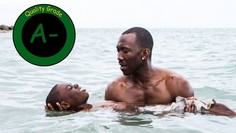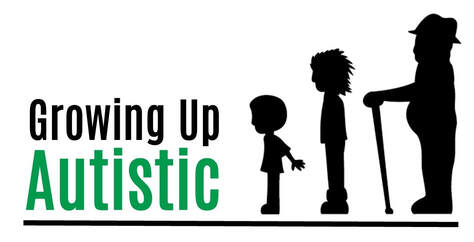
By Trevor Pacelli
Moonlight, the 2017 Academy Award winner for best picture, shows us all the troubles that one boy goes through as he grows up feeling like he’s a homosexual. It is always a confusing place to be when you are young, when you feel uncontrollable romantic desires towards someone of the same sex, and yet are not mature enough to know what to make of it, especially when the other kids at school pick on you because they can sense that you are different.
So imagine how much harder it would be if somebody on the autism spectrum grew up thinking that they were gay or a lesbian?
Six-Word Lessons for Autism Friendly Workplaces, Lesson #31: Discrimination Can Surface in Various Forms. Just like in Moonlight, a boy can become a fast subject of bullying because he’s different in two different ways: skin color and sexual orientation. But in the case of this movie, he’s in an all-Black school, but still has one of these differences from the crowd. Yet imagine if he was in another school of mostly White students, how much more the bullying would get to him? In that same way, anybody who is both autistic and gay would become a walking dartboard for bullies. Yet it’s different in the case of being autistic rather than being Black because those on the spectrum have a harder time putting their concerns into words. Six-Word Lessons on Growing up Autistic, Lesson #45: They Can’t Explain What’s Bothering Them. Therefore, they simply let themselves get bullied for years by everyone at school, even the teachers in some situations, which always creates a dangerous effect on their mentality. They’ll start believing the lies everyone says about them, embrace these lies, and come to live a troubled existence gloating in the very thing they were bullied for. I am not a homosexual myself, nor do I know of anybody who is both autistic and gay, but I have known people who were one or the other. So I understand the long-term trauma and effects that discrimination has on anybody who’s different. I’m not here right now to tell you whether homosexuality is a good or bad lifestyle, nor will I try to convince you whether it’s a method of choice or genetic makeup, but what I can tell you is that bullying anybody, whether autistic or gay, always leaves a permanent scar on the victim that dangerously skews the way they look at the world. So then, what would you do as a parent if your child with autism comes out as being gay? I realize that the answer is different for every parent, as some support the lifestyle while others do not, just like how every child on the autism spectrum is different. But for every case, there is one easy saying that any parent can say to their LGBTQ child: Your sexual preference does not define who you are. I have known people who felt that their gayness made up the wholeness of their identity, and frankly, these declarations have never ended well from what I witnessed. It’s important for us all to know, parents, kids, bullies, teachers, that you are far more than a gay/straight label. I know of a man who happens to be gay, and he is a phenomenal artist and singer, as well as being an all-around super friendly guy. I know of another man who happens to be gay, and he is a very passionate and compelling public speaker who can easily make friends with anyone. I also have a cousin who happens to be married to another man, and my family and I always enjoy the entertaining conversations we have with him. It’s not about their sexual preference that makes people good or bad, it’s how they treat others that defines who they are. So it should be a requirement for all parents to make sure their kids remember that if they ever say, “mom, dad, I’m gay.” In the case of the child coming out also having autism, here are some helpful takeaways than can clear up the child’s confusion:
3 Takeaways:
1 Comment
|
Inspiration for Life with AutismThis blog has a variety of articles about people living life with autism, and topics and ideas that can help in the journey. Guest bloggers are welcome. Inspired by Trevor, a young adult film critic, photographer and college graduate on the autism spectrum. Categories
All
Archives
July 2024
|
Proudly powered by Weebly

 RSS Feed
RSS Feed